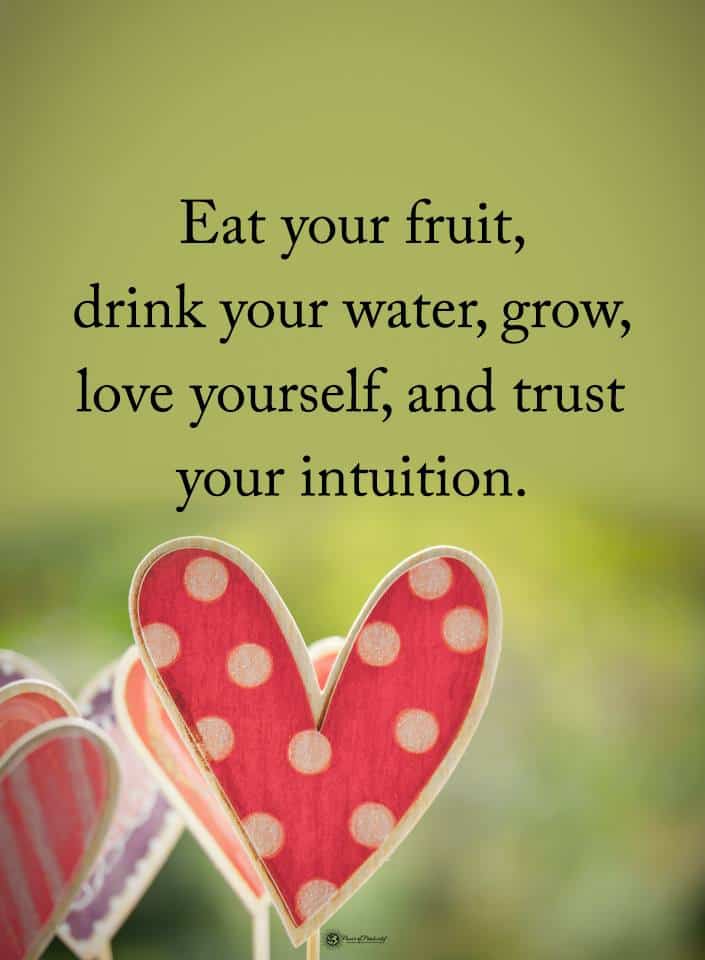With many skin care products to choose from in stores, figuring out which ones will truly help your skin can be confusing. Surprisingly, the best products for acne relief are the ones that contain all-natural ingredients. When learning how to get rid of acne, finding a method that suits your skin type is essential.
Acne affects nearly 17 million people in the United States, making it a leading focus for dermatologists. While approximately 85% of those cases occurred in people between ages 12 and 24, anyone can experience the skin condition. Figuring out how to get rid of acne can help you feel more confident, and it offers relief from the discomfort.
The traditional acne products that you find in the store are typically full of chemicals and can be expensive. Plus, harsh chemicals can cause other problems for your skin, such as dryness, redness, and irritation. Switching to natural acne remedies backed by a dermatologist can save you money and improve the look and feel of your skin.
Once you learn how to get rid of acne quickly, you won’t turn back to other methods. Since dermatologists back these methods, there’s no reason you shouldn’t try them to improve your skin. Alternative acne treatments at home can be the best option, and with so many to choose from, you can find the one that works best for you.
What Causes Acne?
Acne affects the hair follicles on the face, chest, and back, and most people experience it throughout their lifetime. It affects almost all teenagers as they go through puberty, but it can affect adults, too. Women are prone to acne through their late-20’s.Acne is characterized by blackheads, inflammatory papules, and pimples. They appear as tender red bumps, pustules, and cysts or boils.
Acne begins when your pores get clogged with oil and dead skin cells. Since pores connect to a sebaceous gland, an oily substance called sebum gets inside. Once sebum enters the pore, it starts the growth of a bacteria called Propionibacterium acnes.
When your body recognized the bacteria, your white blood cells attack them. This attack is what leads to skin inflammation and acne-prone skin. Some of the factors that might contribute to the development of acne include the following:
- genetics
- an unhealthy diet
- infections
- hormone changes
- stress
- medication
- cosmetics
- an object frequently touching your skin
How to Get Rid of Acne
When you want to see a significant reduction in acne–and fast–try these treatments.
1. Apply Apple Cider Vinegar
Apple cider vinegar contains organic acids, such as citric, lactic, and succinic acid, that can help kill bacteria that cause acne. It can also help prevent and reduce the appearance of acne scars.
Additionally, succinic acid helps stop inflammation, reducing the appearance of acne and preventing scarring. Lactic acid helps improve the appearance of acne scars that you already have.
When you use apple cider vinegar on your skin, mix one part vinegar with three parts of water. Wash your skin before applying the vinegar mixture with a cotton ball. Leave it on your skin for up to 20 seconds, and then rinse with water and pat dry.
2. Take Zinc Supplements
Zinc plays a major role in wound healing and can help with inflammation. Research shows that increasing your zinc intake can help get rid of acne and prevent scarring. In one study, 38 of 48 people that took zinc supplements experienced an 80-100% reduction.
Applying zinc directly to your skin doesn’t work, however, so stick to oral supplements. Keep in mind that too much zinc can cause stomach pain and gut irritation. Don’t consume more than the recommended 40 mg to avoid the adverse effects of this treatment.
3. Use Honey and Cinnamon Mask
Honey and cinnamon both contain antioxidants, antibacterial, and anti-inflammatory properties. These components help fight bacteria such as Propionibacterium acnes and reduce inflammation, preventing acne breakouts. You should not overlook the anti-acne properties of these two household items.
Making a honey and cinnamon mask is easy, and you only need the two ingredients. Mix two tablespoons of honey with one teaspoon of cinnamon, forming a paste. Wash your face and then apply the mask, leaving it on for 10-15 minutes.
4. Apply Tea Tree Oil
Tea tree oil has antibacterial properties, making it beneficial for treating acne. When bacteria accumulate in your pores, the tea tree oil can quickly clear it out, reducing the risk of an outbreak. This oil also reduces skin inflammation, providing comfort as you cure acne.
Studies show that using tea tree oil for acne is four to six times more effective than a placebo. Researchers have also found that tea tree oil is equally effective at getting rid of pimples as a lotion containing benzoyl peroxide.
Dilute a few drops of tea tree oil with aloe vera gel and apply the mixture to the affected area. Leave it on your skin for 20 minutes, and then wash it off with warm water. The aloe vera gel acts as a soothing agent, preventing irritation and redness from the oil.
5. Apply Green Tea
The health benefits of green tea don’t always require that you drink it. When you apply green tea directly to your skin, it can help fight inflammation and pimple-causing bacteria. The flavonoids and tannins found in this tea make it helpful for getting rid of acne fast.
Green tea also contains high levels of the antioxidant epigallocatechin-3-gallate (EGCG). This antioxidant fights inflammation, reduces sebum production, and hinders the growth of Propionibacterium acnes.
While some skincare products contain green tea, you can easily make your own at home. To make it, steep green tea in boiling water for four minutes and then allow it to cool. Then, apply it to your face with a spray bottle or a cotton ball.
Leave the green tea on your skin for at least 10 minutes, but you can leave it on overnight. Rinse your face with water, and then reapply as needed.
6. Apply Witch Hazel
Witch hazel contains tannins that fight bacteria and reduce inflammation when applied directly to your skin. It can help prevent pimples, breakouts, and skin irritation from acne. Studies show that it improves acne more effectively than other methods.
While you can find witch hazel at the store, it doesn’t always contain acne-fighting tannins. Read the label carefully, or use witch hazel bark to make your own.
Mix one tablespoon of witch hazel bark with one cup of water in a saucepan. Soak the witch hazel bark for 30 minutes before bringing the mixture to a boil. Then, reduce the heat and cover the pan, allowing it to simmer for 10 minutes.
Once the mixture finishes simmering, please remove it from the heat and let it sit in the pan for another 10 minutes. Then, strain the liquid and store it in a sealed container. You can use a cotton ball to apply the witch hazel to your skin twice a day or as needed.
7. Apply Aloe Vera
Research shows that aloe vera can help fight bacteria, reduce inflammation, and promote healing. With that being the case, it can help get rid of and prevent acne breakouts. Aloe vera contains bacteria-inhibiting properties such as lupeol, salicylic acid, urea nitrogen, cinnamic acid, phenols, and sulfur.
Studies indicate that using aloe vera with acne medication increased the effectiveness of the treatment. This research explains that aloe vera gel added to clove-basil oil is effective for getting rid of acne quickly. The higher the concentration of aloe vera gel you use, the more it will clear up pimples and acne.
8. Take Fish Oil Supplements
Fish oil contains omega-3 fatty acids, which help manage oil production, prevent pimples, and keep your skin hydrated. These fatty acids, eicosapentaenoic acid (EPA) and docosahexaenoic (DHA), help decrease factors that cause inflammation, preventing breakouts.
Studies show that taking fish oil supplements containing EPA and DHA significantly reduced pimples. You can also increase your omega-3 fatty acid intake by eating walnuts, chia seeds, ground flaxseeds, salmon, sardines, and anchovies. Keep in mind that not all of those foods contain high levels of EPA and DHA, so supplements may still be necessary.
9. Follow Anti-inflammatory Diets
Topical treatments won’t work if the underlying cause is hormone- or diet-related, so eat anti-inflammatory foods. Food that raises your blood sugar quickly will cause your body to release excess insulin. When this happens, your oil glands produce more oil, increasing your risk of acne breakouts.
Foods that cause a spike in insulin levels are high-glycemic carbohydrates, meaning they contain simple sugars. Some of the foods to avoid are:
- white rice
- white bread
- sugar
- pasta
10. Reduce Dairy
Studies show that people who consume more milk or dairy products tend to experience more pimples. Dairy products contain hormones that are associated with acne, including the IGF-1 hormone. For people between the ages of 10 and 24, these extra hormones are linked to moderate or severe acne.
Don’t eliminate dairy products, but limit it to the daily recommended amount. More research is needed to determine if it is the dairy itself or the excess hormones causing acne. Either way, reducing your intake is a sure way to get rid of acne.
11. Stress Management
Stress not only causes acne, but it can worsen symptoms that you already have. Reducing your stress levels and learning to manage them can help you get rid of acne.
Extra hormones are released when you are stressed, which contributes to an increase in sebum production. It also increases inflammation, which is why the symptoms get worse. Stress can slow wound healing, as well, slowing the repair of acne breakouts.
Learning more about relaxation and healthy stress management can help alleviate this issue. Some of the ways you can reduce stress include:
- getting more sleep
- doing yoga
- physical activity
- meditation
- practicing mindfulness
- using deep breathing techniques
12. Exercise Regularly
Exercise promotes blood flow through your body, which helps nourish your skin cells. With healthy cells, your body will prevent and heal acne quickly. Exercise also helps with hormone regulation, decreasing your risk of developing acne breakouts.
Additionally, exercise can help decrease stress levels. Since stress causes acne, exercising can help you in reducing acne in a few different ways.
According to the United States Department of Health and Human Services, adults should get at least two and a half hours of aerobic exercise each week. They also recommend engaging in strength training at least twice a week.
If you don’t enjoy exercise, you can get more physical activities in other ways instead. Find something active that you enjoy, including things like these:
- hiking
- running or jogging
- walking at a brisk pace
- playing high-energy sports
- swimming
13. Exfoliate Regularly
Exfoliating your skin removes the top layer, which is made up of dead skin cells. If the dead skin cells aren’t removed, they can cause bacteria and other foreign particles to get inside your pores. You can find skincare exfoliating products, or you can exfoliate using a scrub brush.
Once you have exfoliated, you can use other treatment methods for acne. With the dead skin cells gone, other treatments can penetrate deeper, offering better results. Exfoliating can also help prevent and reduce the appearance of acne scars.
14. Wash Your Face Regularly
When you’re wondering how to get rid of acne, washing your face regularly is the best way. Wash your face twice each day, and if you’ve been sweating, wash it after that, too. Dermatologists recommend washing your face when you wake up and before you go to bed at night.
Make sure you use skincare products that won’t damage your skin or make the acne worse. Look for products that are:
- non-comedogenic
- non-acnegenic
- oil-free
If the skin cleanser you choose doesn’t work for you, don’t give up on washing your face. Instead, try different products until you find one that treats your acne without causing other issues. What works for one person might not work for you, so keep trying.
Final Thoughts on How to Get Rid of Acne Fast According to Dermatologists
Acne is a common problem that many people experience. You can figure out how to get rid of acne fast, though, by following the advice given by dermatologists. Try one method at a time until you find the ones that work best for you. You will heal acne over time and with a little bit of patience.
Getting rid of acne will boost your confidence and help you feel better about yourself. Plus, you won’t experience the pain or discomfort that can accompany breakouts.

















 Community
Community

